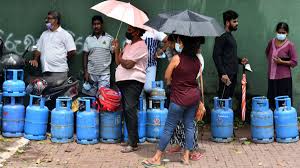Russian authorities threatened to cease supplying the countries that supported the price cap for the country’s oil on Saturday after rejecting it.
Australia, Britain, Canada, Japan, the United States, and the 27-member European Union decided on Friday to set a price cap of $60 per barrel for Russian oil. The restriction and an EU ban on Russian oil shipments by sea are scheduled to go into effect on Monday.
Dmitry Peskov, a spokesman for the Kremlin, stated that although Russia would not accept the price ceiling, it needed to assess the situation before deciding on a precise course of action. Mikhail Ulyanov, Russia’s permanent ambassador to international bodies in Vienna, said that European supporters of the cap might later regret their support.
“Starting this year, Europe won’t be able to use Russian oil, “Tweeted Ulyanov “Russia has already made it clear that it would not provide oil to nations that oppose price restrictions on the market. Wait, the EU will soon charge Russia with using oil as a weapon.
A lower price cap was requested on Saturday by the office of Ukrainian President Volodymyr Zelensky, who claimed that the one established by the EU and the Group of Seven leading countries didn’t go far enough.
Andriy Yermak, the director of Zelensky’s office, stated on Telegram that “it would be necessary to lower it to $30 in order to undermine the enemy’s economy faster.” Poland, a vocal opponent of Russian President Vladimir Putin’s conflict in Ukraine, shared this opinion.
According to the agreements made on Friday, oil shipping companies, insurance companies, and other businesses can only deal with Russian petroleum that is priced at or below the cap. The majority of insurers are based in the EU and the UK and may be obliged to abide by the ceiling.
The price of Russian crude has already been around $60 per barrel, which is significantly less expensive than the global benchmark Brent, which ended Friday at $85.42 per barrel.
Russian oil, according to the Russian Embassy in Washington, “will continue to be in demand,” and the price cap is being challenged for “reshaping the core principles of the functioning of free markets.” The per-barrel cap would cause “a widespread increase in uncertainty and greater costs for users of raw materials,” according to a message on the embassy’s Telegram channel.
If the price cap has any teeth will depend on what happens in China, according to Jim Burkhard, an IHS Markit oil markets analyst. According to him, most Russian crude exports are already selling for less than $60 due to China’s muted demand.
The price cap aims to further constrain Russia’s ability to finance a conflict that has claimed the lives of untold numbers of civilians and combatants, forced millions of Ukrainians from their homes, and burdened the global economy for more than nine months.
According to the General Staff of the Ukrainian Armed Forces, since Friday, Russian forces have launched 44 shelling attacks, against Ukrainian military positions and infrastructure, conducted 27 airstrikes, and fired five missiles.
The attacks in the Donetsk region of eastern Ukraine, according to Kyrylo Tymoshenko, the deputy head of the president’s office, left one civilian dead and four others injured. Russian forces, which have been attempting to take over the small Donetsk city of Bakhmut for weeks, “continue to invest a large element of their overall military effort and firepower,” according to the U.K. Defense Ministry.
Governor Yaroslav Yanushkevich of the Kherson province in southern Ukraine, whose capital city of the same name was liberated by Ukrainian forces three weeks ago after a Russian retreat, said evacuations of civilians trapped in Russian-held territory across the Dnieper River would temporarily resume.
Last month, Russian troops retreated to the eastern bank of the river. For three days during daylight hours, Yanushkevich promised, to lift the prohibition on crossing the waterway for Ukrainian citizens who “did not have time to leave the temporarily occupied territory.” He mentioned a “possible intensification of hostilities in this area” in his announcement.

















